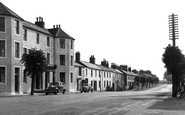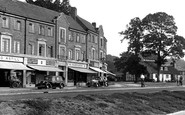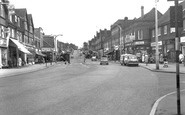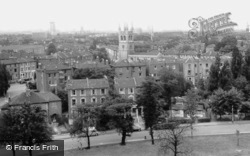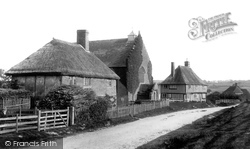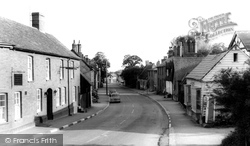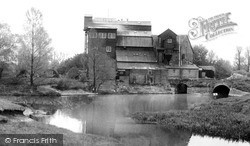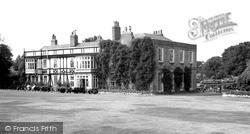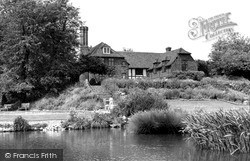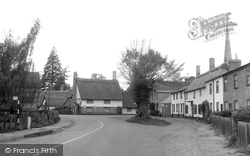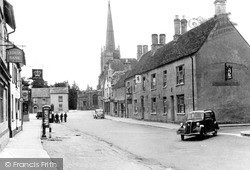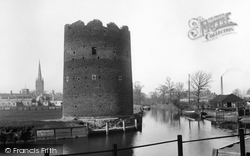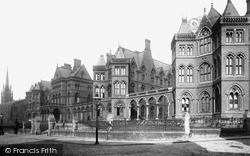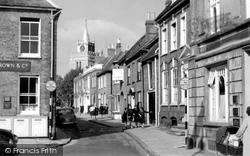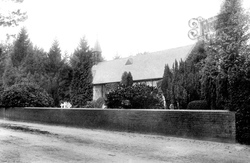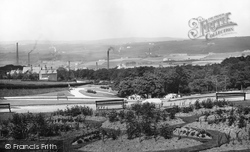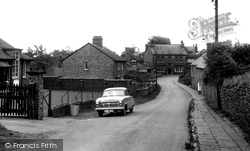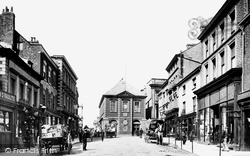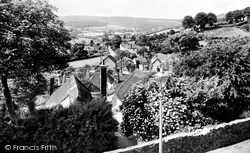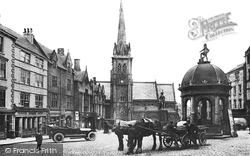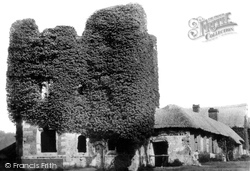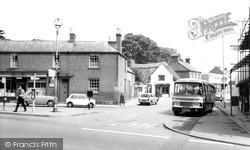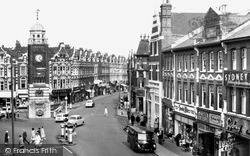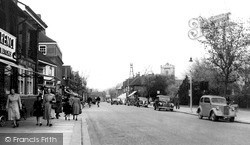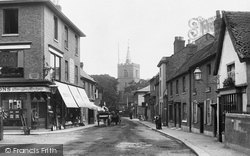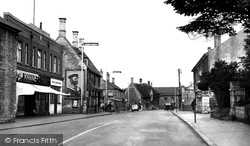Places
2 places found.
Those places high-lighted have photos. All locations may have maps, books and memories.
Photos
5 photos found. Showing results 281 to 5.
Maps
29 maps found.
Books
Sorry, no books were found that related to your search.
Memories
668 memories found. Showing results 141 to 150.
Longtown High Street
My great-great grandfather was George 'Dood' McKie and he lived in a house about six doors beyond the Graham Arms Hotel which is shown in the Francis Frith photo number L203002. He was one of those Longtown characters who are ...Read more
A memory of Longtown in 1880 by
Chingford Hatch
Does anyone remember the Manor pub at the bottom of Friday Hill? It was replaced by the Wheelwrights some years later, there used to be a van selling teas and coffees to the bus drivers and conducters in their breaks at the bus ...Read more
A memory of Chingford in 1957 by
Growing Up In Dovercourt
I have been trying to remember the exact dates when we lived in Dovercourt but I think it was something like 1953-57, while my father worked for the railway at Parkeston Quay. We first rented a place in Shaftesbury Avenue ...Read more
A memory of Dovercourt in 1955 by
Evacuee During The Second World War
Dear Mr Lord, My sister Jean Marie Church and I, Marie Elizabeth Church, attended Findern School for four years plus during the Second World War. I was almost 7 years old, my sister almost 6 years old. As I ...Read more
A memory of Findern in 1940 by
St Phillips Convent
I believe that before the convent was called St. Michaels it was St. Phillips located on Church Street opposite Fullers Bakery. The lady would come over on our break and sell sticky buns out of a square basket for a penny a bun. ...Read more
A memory of Blackboys in 1930 by
Fluids Lane
I moved to Oadby in 1969 as a 9 year old. I also remember many happy days playing along Fluids Lane, in the stream, building and breaking down dams, going into the fields, scrumping and getting caught on more than one occasion. Such a shame it is no longer the same.
A memory of Oadby in 1969 by
Growing Up In Sutton
We lived at no 6 Greenfields, Sutton. My nan lived at four with my grandad Tom - in fact it was my family which helped forge Sutton village. I remember many families; Mr and Mrs Harland who ran the village shop, ...Read more
A memory of Sutton by
Wood Hatch, Western Parade
This photo is of the shops in Western Parade, Woodhatch, Reigate. Also in the picture, partially obscured by the trees, is The Angel public house. Woodhatch is a suburb of Reigate, about 2 miles due south from the town ...Read more
A memory of Reigate in 1955 by
More Of My Memory Of Halling
Hi all, remembering more about the young days in Halling. On a Saturday, and holidays we used to go down the paths leading through the marshes to the river, our Mums used to say "if you are not off the marshes by 12 ...Read more
A memory of Halling in 1948 by
Collision Junction
The photo of this junction at the bottom of Central Road brought back memories of a motorcycle accident I had resulting in my girlfriend, later to be my wife, breaking her pelvis and me losing a front tooth. It was dark and ...Read more
A memory of Worcester Park in 1962 by
Captions
388 captions found. Showing results 337 to 360.
Nearly all the villas have since been demolished and replaced by four-storey council flats in yellow stock brick.
The half-timbered house on the left was the Priest's House, and it stands beside a small church which was rebuilt in brick after being burned down in 1514.
The building on the right with the tall brick chimneys is the Reading Room, erected in the 1860s to provide a respectable meeting place for the young men of the village.
Semi-derelict; a collection of rusting iron and crumbling brick, its former glories (few) were well hidden.
Through the 16th century, and into the 17th, rooms were added; in c1820 the brick wing clearly visible in the photograph was built.
the de Southchurch family.The central hall is open to the roof beams.A Tudor extension was added to the west of the building in 1560.Here we have an excellent view of part of the moat around the brick
On the right of the tree, the low tiled building is the Forge (now Forge Cottage), whilst the brick-fronted houses are the delightfully named April and May Cottages.
The 18th-century stone building of the Lion pub looks snug, and the 3-storey red brick New Inn can be glimpsed on the corner.
This massive medieval structure, formed of flint and ruddy Dutch bricks, squats close by the river, near Bishop Bridge.
This imposing brick building was built in the Gothic style to the design of George Gilbert Scott in 1868. In the distance is St George's church, another Victorian creation.
The brick front dates from 1739, and is a re-fronting of a mid 16th-century timber-framed house by Thomas Hickman, a native of Aylesbiry born in 1695.
The building is of red and blue brick diapering, and it has a small bell turret with Jacobean balusters. The south porch is timber, and in the north aisle there are two wooden posts.
Built of local brick with wide stone viewing balconies, it is modelled on the bell-tower of St Marks Square in Venice, and it took fourteen years to build.
The 1905 primary school is on the left beside the Ford Consul, next to a pair of 1920s brick houses.
The town developed fast during the 19th century, and became an important centre for brick and tile manufacture.
Most were enlarged upwards, with bedrooms added, their little semi- dormer windows breaking the line of eaves.
This wonderful photograph shows a beautiful convertible car, probably belonging to one of the landed gentry; the two delivery men enjoy a break whilst their horses tuck into their nosebags; and the little
Built by Archbishop Warham in the early 16th century, this small manor house, consisting of a three-storey brick tower, a gallery (later turned into cottages), and the single-storey storehouse beyond
The battlemented tower of St Bartholomew's (left) just shows above the row of rather good brick and tile cottages, into which the post office has been thrust.
The quirky terracotta and brick Clock Tower was designed by F G Knight 1805. Crouch End possesses two of London's outstanding late 19th-century pubs, the Queens Hotel and the Salisbury.
Not many years ago, in an unprepossessing house off the High Street, a timber-framed building of the 17th century was found, quite by accident, wrapped in its 1930s brick overcoat.
On the right, all the red brick cottages went about 1900 to be replaced by the buildings seen in view 49245.
The battlemented tower of St Bartholomew's (left) just shows above the row of rather good brick and tile cottages, into which the post office has been thrust.
It is a curious contrast of building styles, ranging from the fine thatched stone house dated 1609 in the distance to the mundane brick of John Manners Ltd, now an engineering supplies store.
Places (2)
Photos (5)
Memories (668)
Books (0)
Maps (29)



